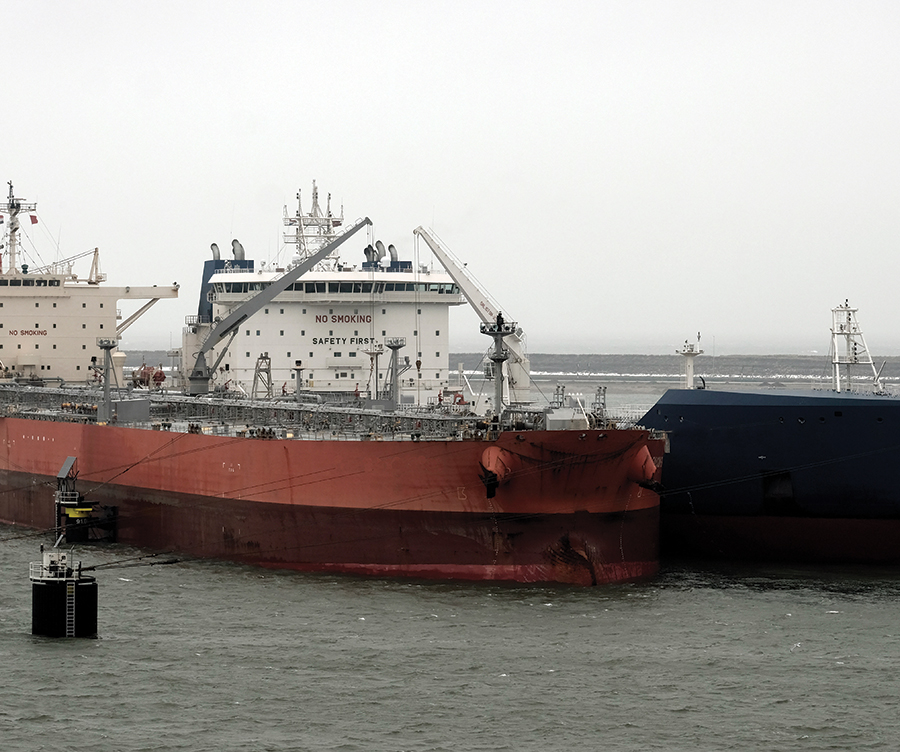A recent Singapore court ruling that found Winson Oil made fraudulent representations to two banks brings much-needed clarity to the trade finance sector, industry insiders believe.
Winson Oil had sued Standard Chartered and OCBC for non-payment under two letters of credit (LCs) totalling over US$60mn. The banks refused to pay on the basis of suspected fraud, arguing that it later emerged the cargo had already been sold to other buyers and that documents underpinning the trades had been forged.
Although documents were not falsified by Winson, but by disgraced trading house Hin Leong, the court ruled on August 18 that Winson did not have belief that the transactions were legitimate, and so was acting fraudulently when it sought payment from the two lenders.
The ruling has been hailed by experts for clarifying whether a reckless trader is acting fraudulently, particularly in the wake of a controversial ruling last year involving PPT Energy, Crédit Agricole and collapsed trader ZenRock.
“This is a significant victory for the banks,” says a source involved in the Winson dispute, speaking on condition of anonymity. “PPT was the case that caused some concern.”
In the PPT case, Crédit Agricole provided an LC for a US$24mn sale of oil to ZenRock. The transaction was part of an elaborate circular trade and money-making scheme by ZenRock, which involved producing forged documents such as sales contracts.
The bank argued that it should not have to pay out on the LC, on the grounds PPT recklessly presented documents with indifference as to whether they were valid or not.
However, the court disagreed, with the judge ruling that the trader’s recklessness “does not give grounds to restrain payment under a letter of credit and PPT did not act fraudulently”.
The source says: “The trouble with that case was ‘recklessness’ could be interpreted differently. If you took the judge’s statement in that case, perhaps out of context, it could cast some doubt over whether being indifferent to the truth is sufficient for the fraud exception.
“What this case clarifies now is that if you’re indifferent to the truth, how can you say that you actually believed in the truth of the statement?”
The PPT ruling sparked concern within the industry, says Baldev Bhinder, managing director of Singapore law firm Blackstone & Gold.
Crédit Agricole had alleged that PPT presented an invoice and letter of indemnity (LOI) claiming it was involved in a genuine trade transaction with ZenRock, but the court found the trader’s indifference to whether that was true was not enough to constitute fraud.
“That significantly reduces the value of the LOI,” Bhinder tells GTR. “It might then be said to only reward traders who promise banks in their LOIs that they have good title and are entitled to original bills of lading without doing very much to check if that is indeed the case.
“Then, you’re effectively rewarding traders that put their heads in the sand when the flags are red, and shifting the risk of detection onto banks, whereas the traders are actually best placed to understand how legitimate a transaction is.”
The Winson judgement, Bhinder says, “puts everything back into context”.
“It means if a trader is recklessly indifferent to the truth of a transaction, then it runs the risk that it is not legitimate, and if that’s the case it doesn’t get paid,” he says. “In my view, this case correctly balances that allocation of risk between the beneficiary of an LC and the bank.”
Factual differences
The source close to the case says that despite its significance, the judgement should not be viewed as contradicting the PPT ruling.
“The judge found there are factual differences between the two cases,” they note. “With PPT, the argument around indifference to the truth had to do with the fraud perpetrated by ZenRock, and as far as PPT was concerned, there was no obligation to dig deeper and find out whether there was any wrongdoing between ZenRock and the banks.”
In Winson’s case, however, the court found the trader did not behave as expected when alerted by OCBC to the possibility of fraud.
“The moment OCBC rejected one of the documents, there were no real checks done and no real inquiries made; Winson Oil just set about producing another set of documents to present to another bank,” the source says.
Winson also claimed Trafigura – the party responsible for initially purchasing the goods from Hin Leong before selling them onto Winson – made false representations in the LOI it provided to Winson. However, the same representations, relating to the same cargo, were also included in Winson’s own LOIs, they say.
In addition, the court ruled that the circular transaction structure, which would be completed once Winson sold the cargo back to Hin Leong, was pre-arranged.
“That meant Winson’s argument – that it found itself in difficulty as the market was failing, but luckily was able to sell to Hin Leong – was thrown out by the court,” the source adds.
A second source close to the case, also speaking on condition of anonymity, points out that the case “does not lower the bar for the fraud exemption”.
“Fraud is as difficult to prove as ever, and proving fraud always comes down to the facts,” they say. “It is not so much the law that changes things, but your litigation strategy, and how you collect and present your evidence.”
OCBC and Standard Chartered declined to comment when contacted by GTR. Winson Oil did not respond when contacted.







